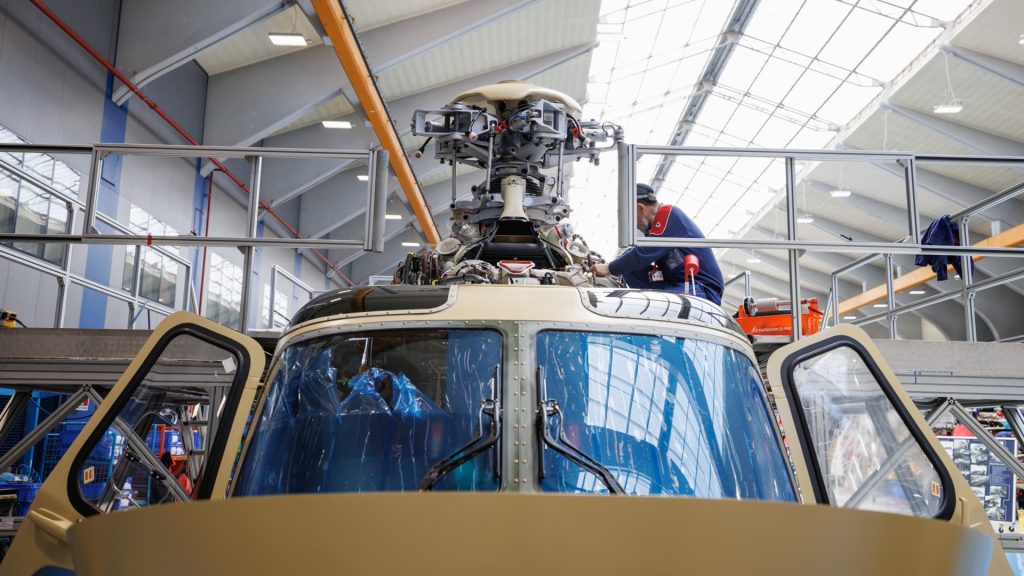In a strategic move amid growing concerns over reliance on American technology, the European defense firm Leonardo is teaming up with Airbus and Thales to develop a satellite alliance aimed at providing European alternatives to Elon Musk’s Starlink internet service. Leonardo’s CEO, Roberto Cingolani, announced plans for the alliance which may materialize in the coming months, as the European defense sector underlines the necessity for enhanced self-reliance and security capabilities. This development comes at a time when Europe is actively reevaluating its defense strategies amidst increasing geopolitical tensions and rising defense budgets.
| Article Subheadings |
|---|
| 1) Overview of the Planned Satellite Alliance |
| 2) Implications of European Defense Spending |
| 3) The Role of Starlink in Modern Defense |
| 4) Regulatory Considerations for the Alliance |
| 5) Future Prospects for European Defense Initiatives |
Overview of the Planned Satellite Alliance
Leonardo, a key player in the European defense sector, has initiated discussions to form a satellite alliance that includes major partners like Airbus and Thales. This alliance is expected to provide European firms with greater autonomy in satellite communications, particularly as Europe shifts away from dependence on American technologies like Starlink. According to Roberto Cingolani, CEO of Leonardo, the collaboration seeks to explore synergies among the companies and assess the market viability of the initiative. Moreover, Cingolani indicated that the timeline for presenting a business plan is set for the coming months rather than years, reflecting the urgency of Europe’s evolving defense landscape.
Implications of European Defense Spending
Recent initiatives have revealed a significant shift in European defense spending strategy. With external pressures from the United States prompting a reevaluation of defense capabilities, the European Union is on track to enhance its military expenditures markedly. The projected budget increases, which could total around 800 billion euros, seek to diversify defense investments and reduce reliance on foreign entities. This heightened expenditure on defense is driven partly by the realization that historical dependence on the U.S. for security may no longer be viable, particularly given the geopolitical instabilities influenced by events such as Russia’s actions in Ukraine.
The Role of Starlink in Modern Defense
Starlink, the satellite internet service developed by SpaceX, has been pivotal in providing communication channels during conflicts, most notably highlighted by its usage in Ukraine amid its ongoing confrontation with Russia. However, in response to its growing dominance and to address concerns over a single technological monopoly, European nations are considering alternatives. Following Italy’s suspension of talks with SpaceX for secure communications, Cingolani noted that the European alliance does not aim at countering Musk’s enterprise but instead seeks to establish a viable European option for satellite communications, reinforcing the continent’s strategic autonomy in defense technology.
Regulatory Considerations for the Alliance
As Leonardo, Airbus, and Thales move forward with their proposals, there are regulatory hurdles to consider. Discussions with European regulators concerning antitrust implications are necessary to navigate potential legal challenges, and Cingolani has emphasized the importance of flexible regulations during critical times. The objective is to prioritize security and deterrence over competitive pricing, balancing economic factors with the pressing need for robust defense mechanisms. The authorities involved are anticipated to play a key role in facilitating this partnership while ensuring compliance with established regulatory frameworks.
Future Prospects for European Defense Initiatives
As the timeline for forming the satellite alliance progresses, many analysts and industry insiders remain optimistic about the future of European defense initiatives. Increased collaboration among European defense firms like Leonardo, Airbus, and Thales could foster innovation and technological advancements, contributing to a more integrated defense ecosystem. Furthermore, as European nations pivot towards self-reliance in defense, there may be opportunities for establishing additional alliances across various sectors, ultimately reinforcing the continent’s position on the global defense stage.
| No. | Key Points |
|---|---|
| 1 | Leonardo is forming a satellite alliance with Airbus and Thales as a response to rising demand for European alternatives to Starlink. |
| 2 | Recent geopolitical events have prompted Europe to increase its defense spending and capability. |
| 3 | Starlink’s role in defense communication has raised concerns about technological monopolies, leading to the search for European solutions. |
| 4 | Regulatory discussions regarding antitrust concerns are essential for the new satellite alliance. |
| 5 | The future of European defense initiatives looks promising as collaboration among companies might lead to innovation and security improvements. |
Summary
The formation of a satellite alliance between Leonardo, Airbus, and Thales marks a significant turning point for European defense capabilities. Driven by geopolitical pressures and a desire for autonomy, this initiative underscores the urgency to bolster Europe’s technological independence. As the defense landscape shifts and funding increases, these developments may redefine the continent’s approach to security and its reliance on external technologies. Ultimately, this collaboration could pave the way for a new era in European defense innovation and stability.
Frequently Asked Questions
Question: What is the purpose of the satellite alliance being formed by Leonardo, Airbus, and Thales?
The satellite alliance aims to provide European alternatives to American technologies, particularly in satellite communications, and enhance self-reliance among European defense firms.
Question: Why is Europe increasing its defense spending?
Europe is increasing its defense spending due to geopolitical pressures and the realization that it cannot solely rely on U.S. defense capabilities in the current global climate.
Question: What are the regulatory concerns regarding the new satellite alliance?
Regulatory concerns primarily center around antitrust implications and the need for flexible regulations to facilitate collaboration among the firms involved while maintaining fair competition.
